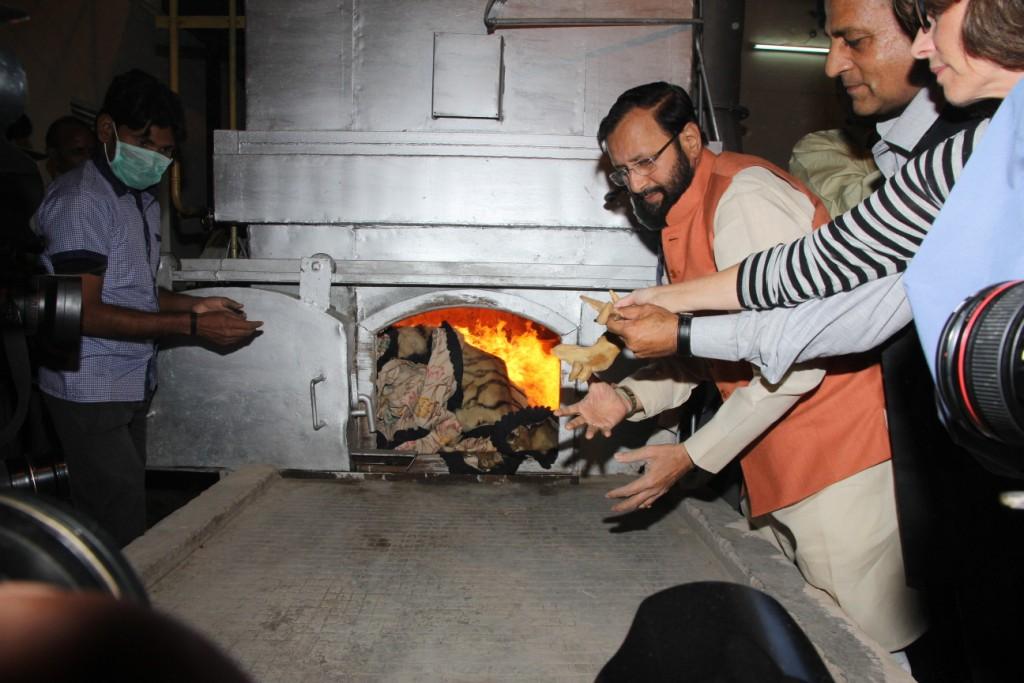| Environment and Forests Minister Prakash Javadekar with a confiscated leopard skin ready to be burned. |
The Ministry of Environment and Forests (MoEF) has recently destroyed a large number of confiscated illegal wildlife products, in order to maintain its intolerance towards the illegal trade of such merchandise. The products, which derived from animals such as deer, elephants, leopards, lions, mongooses, owls, snakes, and tigers, were smashed and burned by MoEF officials at the Delhi Zoo. These illicit products resulting from lawless activities in India were confiscated by the Wildlife Department of Delhi in an effort to combat wildlife crimes. In addition, few wildlife products at the Delhi Zoo were also destroyed. According to Minister of Environment and Forests Prakash Javadekar, the money produced from the illegal wildlife trade is being used for global crimes like terrorism and drug trafficking and indicated that the government is dedicated towards the protection of India's fauna and flora. He further added that the practice of hunting occurred 200 years ago and resulted in a situation where several species of animals became endangered and the verge of extinction.
 |
| Minister Prakash Javadekar and other MoEF officials burning illegal wildlife products in the Delhi Zoo. |
This action committed by the MoEF sends a clear and distinct message that India cannot and will not tolerate the illegal wildlife trade which continues to threaten the world's endangered species. This lucrative, yet illicit business is connected to other global crimes like illegal drug trafficking, arms trafficking, human trafficking, and even terrorism. That is, the money generated from the illegal wildlife trade is used for carrying out criminal activities that endanger human lives. In other words, terrorism and other global crimes that threaten human beings are intertwined with poaching and the illegal wildlife trade. This is why it is essential to understand this connection so that the world can come together to put a stop to crimes directed at both humans and animals. When admitting that money made from the illegal wildlife trade is used for conducting crimes against humans, Minister Javadekar gave an example of how a single rhino horn can produce Rs. 10 million which can be used for terrorism or drug trafficking. Another classic example is seen in the case of elephant ivory which is used to finance Africa's militant groups such as the Al-Shabaab, Janjaweed, and the Lord's Resistance Army (LRA). In Malaysia, there are fewer than 350 tigers left as a result of poaching and the money generated from the products derived from these big cats could be used for trafficking drugs, weapons, and humans or even terrorism. Therefore, it is essential that countries around the world, including those that serve as major hubs for poaching and the illegal wildlife trade, to band together in order to put a stop to wildlife crimes in order to not only save endangered species but also human beings.
View article here
No comments:
Post a Comment